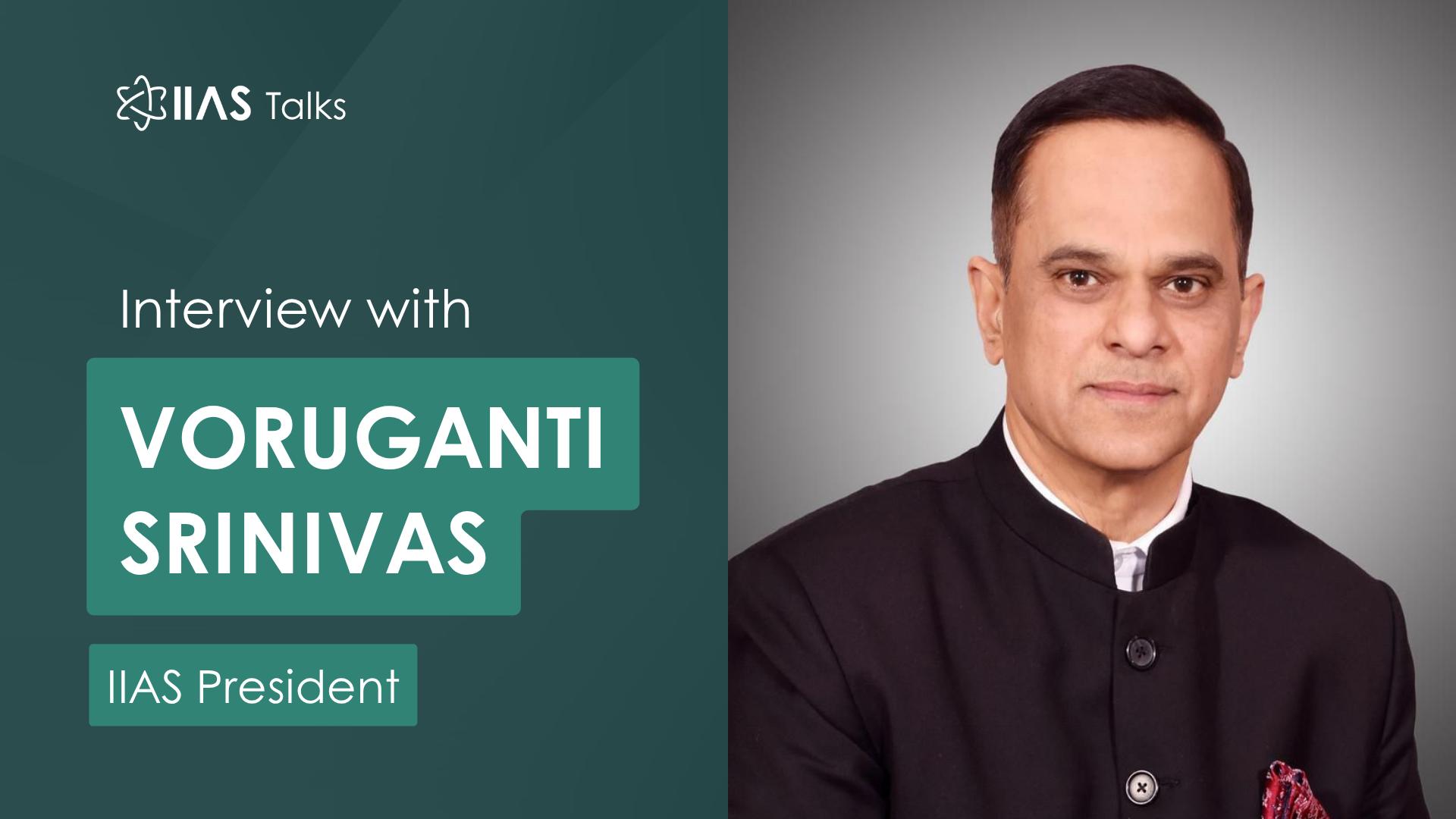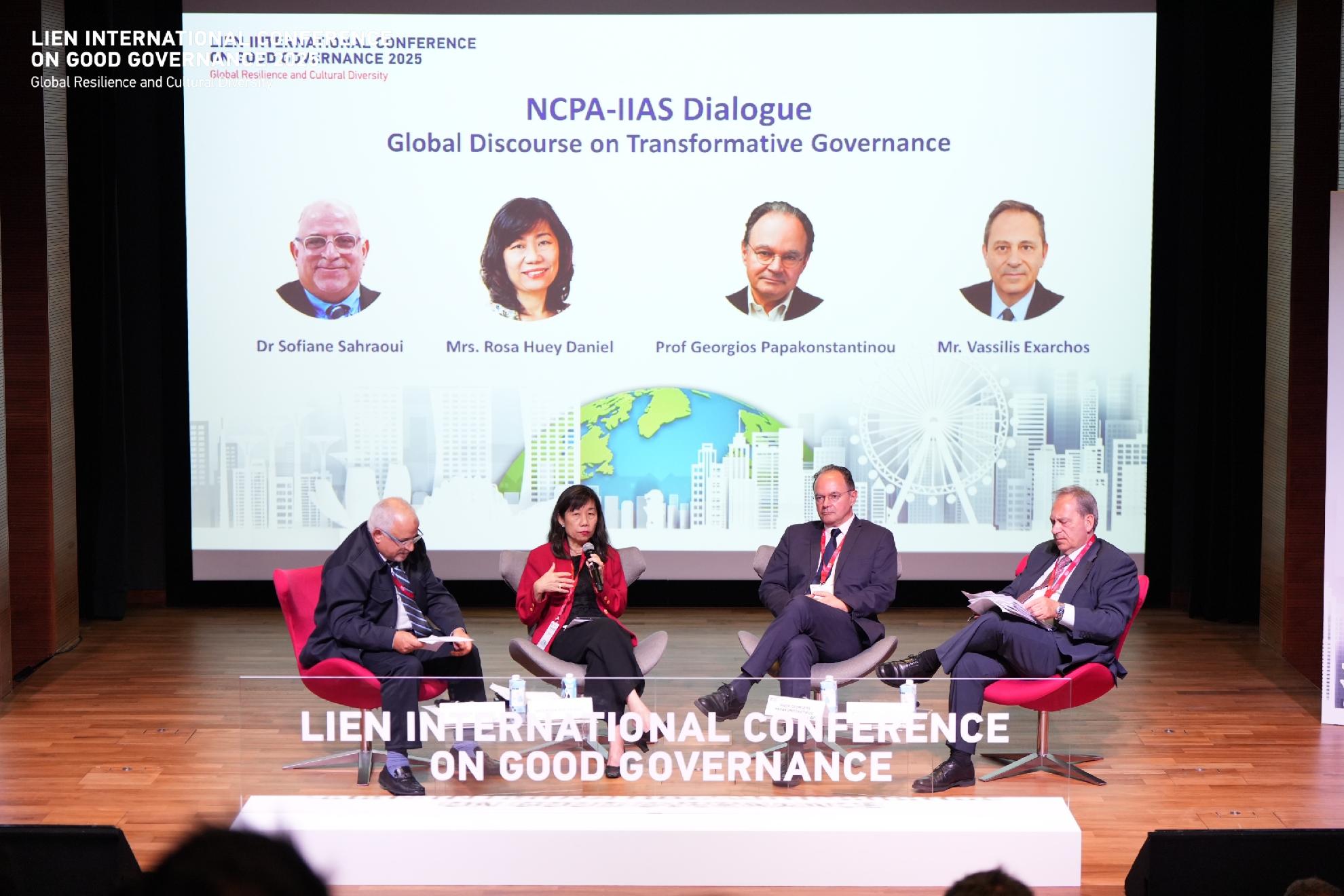The LAGPA 2024 Conference was held in Mexico City, Mexico, on 22-24 October 2024. The event was organized by the Latin American Group for Public Administration (LAGPA), the regional entity of the International Institute of Administrative Sciences (IIAS), the University of Valle (Colombia), and the Mexican National Institute of Public Administration (INAP) with support from the Latin American and Caribbean Development Bank (CAF), and addressed the theme "New Perspectives and Challenges of Democracy and Governance in Latin America." Convening approximately 200 participants over three days, the conference brought together attendees from Mexico, Colombia, Tunisia, Morocco, Uruguay, Chile, Bolivia, Peru, Argentina, Brazil, Ecuador, and the United States to discuss critical issues facing the Latin American region.
LAGPA 2024 Conference addressed the crisis of democracy and public administration in Latin America, focusing on public distrust in institutions and political instability. Discussions centered on reimagining government approaches to restore legitimacy and effectiveness, with a particular emphasis on public management and technology. Innovations such as artificial intelligence and digitalization of public services were highlighted as key tools to enhance transparency and accessibility in governance.
The first day featured keynote addresses exploring the challenges facing democracy and governance in the region. Over the second and third days, specialized panel discussions included:
- Public Management and Technology: Examining how artificial intelligence and digital transformation can improve public administration.
- Latin America and the SDGs: Discussing strategies for sustainable development aligned with the UN's Sustainable Development Goals.
- Security and Justice Policies: Addressing security challenges such as violence and organized crime in Latin America.
Additionally, a Talking session on Civil Service in Colombia provided insights into the evolution and challenges faced by Colombia’s public service sector.
Before the General Assembly, a panel of experts shared insightful presentations on the challenges and opportunities facing public administration in Latin America. Led by Dr. Rafael Martínez Puón, with contributions from Dr. Bairon Otálvaro, Dr. Maira Prieto Padilla, Dr. Adrián Velázquez Vázquez, and Dr. Freddy Maríñez Navarro, the panelists presented analyses and recommendations addressing critical governance issues in the region.
Dr. Rafael Martínez Puón opened with a summary of five key themes discussed throughout the conference:
1. Public Administration as a Political Institution: Emphasizing the challenges of populism and citizen disillusionment.
2. Government Agenda: Addressing insecurity, inequality, and corruption as factors that heavily impact public trust.
3. Strengthening Institutional Capabilities: Highlighting the need for agile and efficient administration to meet current demands.
4. Policies in Artificial Intelligence, Sustainable Development, and Security: Topics of growing urgency.
5. Professionalization of the Public Service: Underlining the importance of a well-trained and committed public service.
Dr. Bairon Otálvaro continued the analysis, underscoring the importance of inclusive policies addressing youth, gender, and transitional justice. He advocated for recognizing artificial intelligence as a public good aimed at social welfare, not solely private interests, and added, "We must ensure that AI strengthens social cohesion rather than creating divides."
Dr. Maira Prieto Padilla examined the financial and structural challenges of merit-based public servant selection, emphasizing the need to balance technical skills with interpersonal competencies in hiring, while promoting transparency and preventing favoritism. “A professional public service must be rooted in principles of transparency and fairness, essential for citizen trust,” she said.
Dr. Adrián Velázquez Vázquez explored the transformative role of artificial intelligence in public administration, stressing the ethical considerations and need for a strong regulatory framework. “AI should be a tool for social transformation, guided by ethical principles and regulations to safeguard privacy and citizens’ rights,” he noted.
Finally, Dr. Freddy Maríñez Navarro emphasized the importance of professionalism in public service, highlighting leadership, communication, and critical thinking skills. He also stressed the need for a robust ethical foundation in public administration since “The integrity of our institutions depends on strong ethics guiding every action and decision.”
The panel’s session concluded with a clear call to action for LAGPA, which aims to bring these recommendations to life through concrete initiatives at future events. The conference underscored the importance of tackling public administration challenges in Latin America through coordinated efforts centered on inclusion, transparency, and institutional strengthening for the benefit of all citizens.
The conference closed with the General Assembly, where participants reflected on key insights, discussed future collaborations, and made recommendations for advancing public administration practices in the region. The assembly highlighted the critical need for continuous dialogue and innovation to address evolving governance challenges in Latin America.
Presentations, videos of recorded sessions, and a photo gallery from the LAGPA 2024 Conference are now available on the event’s official website.
Awards
During the LAGPA 2024 Conference in Mexico City, two distinguished awards honored individuals whose contributions have significantly shaped public administration in Latin America and beyond.
 The prestigious IASIA Donald C. Stone Award 2024 was presented to Professor Luis Solari de la Fuente, recognizing his exceptional contributions to public administration and dedication to advancing the mission of the International Association of Schools and Institutes of Administration (IASIA/IIAS). Named after one of IASIA’s founders and a central figure in public administration, the Donald C. Stone Award celebrates individuals whose work has profoundly impacted the organization and the field. Since its establishment in 2012, the award has been bestowed annually on esteemed professionals, practitioners, and scholars. This year, Professor Solari’s recognition highlights his exceptional career and influence in public service, particularly through his roles as Prime Minister and Minister of Health in Peru and as founder and dean of the Faculty of Health Sciences at Universidad Católica Sedes Sapientiae.
The prestigious IASIA Donald C. Stone Award 2024 was presented to Professor Luis Solari de la Fuente, recognizing his exceptional contributions to public administration and dedication to advancing the mission of the International Association of Schools and Institutes of Administration (IASIA/IIAS). Named after one of IASIA’s founders and a central figure in public administration, the Donald C. Stone Award celebrates individuals whose work has profoundly impacted the organization and the field. Since its establishment in 2012, the award has been bestowed annually on esteemed professionals, practitioners, and scholars. This year, Professor Solari’s recognition highlights his exceptional career and influence in public service, particularly through his roles as Prime Minister and Minister of Health in Peru and as founder and dean of the Faculty of Health Sciences at Universidad Católica Sedes Sapientiae.
Dr. Najat Zarrouk, President of IASIA, presented the award, emphasizing Professor Solari’s significant contributions both within Peru and internationally. In his acceptance speech, Professor Solari shared his journey from practicing physician to Minister of Health, stressing the importance of "seeing what cannot be seen" in public administration—recognizing the often-invisible forces and individuals in policy and service. "Understanding people and the complexities they face," he said, "is essential for effective public service." Professor Solari concluded with gratitude for his family, supporters, and colleagues, underscoring the political commitment and public dedication that have driven his career. His achievements stand as an inspiration to future generations in public administration.
 The International Administrative Merit Medal "Gustavo Martínez Cabañas", awarded by the National Institute of Public Administration (INAP) in Mexico, was presented to Professor Paulo Roberto de Mendonça Motta. This esteemed award, established in 2011, has been given only six times before, making Professor Motta the seventh honoree. It recognizes individuals who have made exceptional contributions to advancing public administration. Named after Gustavo Martínez Cabañas, a pioneer in Mexican public administration, this award represents a legacy of professionalism, transparency, and commitment to social welfare.
The International Administrative Merit Medal "Gustavo Martínez Cabañas", awarded by the National Institute of Public Administration (INAP) in Mexico, was presented to Professor Paulo Roberto de Mendonça Motta. This esteemed award, established in 2011, has been given only six times before, making Professor Motta the seventh honoree. It recognizes individuals who have made exceptional contributions to advancing public administration. Named after Gustavo Martínez Cabañas, a pioneer in Mexican public administration, this award represents a legacy of professionalism, transparency, and commitment to social welfare.
Professor Motta’s contributions were highlighted not only for his personal achievements but also for his association with the Getulio Vargas Foundation (FGV), which has played a vital role in promoting public sector excellence. As a corporate member of both IASIA and LAGPA, FGV supports the professional development and academic advancement that define the field of public administration. For additional details on Professor Paulo Roberto de Mendonça Motta’s work, visit his profile on the FGV EBAPE website.
Call for Nominations for IASIA 2025 Awards
As the conference concluded, IASIA announced its open call for nominations for the 2025 Donald C. Stone Award and the O.P. Dwivedi Award. These honors recognize outstanding contributions to public administration and policy worldwide. Members are invited to nominate candidates by emailing IASIA Executive Secretary Cesar Alfonzo at c.alfonzo@iias-iisa.org, with a copy to awards@iias-iisa.org. All nominations must be submitted by December 31st, 2024, 12:00 AM (Brussels time).



 The prestigious IASIA Donald C. Stone Award 2024 was presented to Professor Luis Solari de la Fuente, recognizing his exceptional contributions to public administration and dedication to advancing the mission of the International Association of Schools and Institutes of Administration (IASIA/IIAS). Named after one of IASIA’s founders and a central figure in public administration, the Donald C. Stone Award celebrates individuals whose work has profoundly impacted the organization and the field. Since its establishment in 2012, the award has been bestowed annually on esteemed professionals, practitioners, and scholars. This year, Professor Solari’s recognition highlights his exceptional career and influence in public service, particularly through his roles as Prime Minister and Minister of Health in Peru and as founder and dean of the Faculty of Health Sciences at Universidad Católica Sedes Sapientiae.
The prestigious IASIA Donald C. Stone Award 2024 was presented to Professor Luis Solari de la Fuente, recognizing his exceptional contributions to public administration and dedication to advancing the mission of the International Association of Schools and Institutes of Administration (IASIA/IIAS). Named after one of IASIA’s founders and a central figure in public administration, the Donald C. Stone Award celebrates individuals whose work has profoundly impacted the organization and the field. Since its establishment in 2012, the award has been bestowed annually on esteemed professionals, practitioners, and scholars. This year, Professor Solari’s recognition highlights his exceptional career and influence in public service, particularly through his roles as Prime Minister and Minister of Health in Peru and as founder and dean of the Faculty of Health Sciences at Universidad Católica Sedes Sapientiae. The International Administrative Merit Medal "Gustavo Martínez Cabañas", awarded by the National Institute of Public Administration (INAP) in Mexico, was presented to Professor Paulo Roberto de Mendonça Motta. This esteemed award, established in 2011, has been given only six times before, making Professor Motta the seventh honoree. It recognizes individuals who have made exceptional contributions to advancing public administration. Named after Gustavo Martínez Cabañas, a pioneer in Mexican public administration, this award represents a legacy of professionalism, transparency, and commitment to social welfare.
The International Administrative Merit Medal "Gustavo Martínez Cabañas", awarded by the National Institute of Public Administration (INAP) in Mexico, was presented to Professor Paulo Roberto de Mendonça Motta. This esteemed award, established in 2011, has been given only six times before, making Professor Motta the seventh honoree. It recognizes individuals who have made exceptional contributions to advancing public administration. Named after Gustavo Martínez Cabañas, a pioneer in Mexican public administration, this award represents a legacy of professionalism, transparency, and commitment to social welfare.
